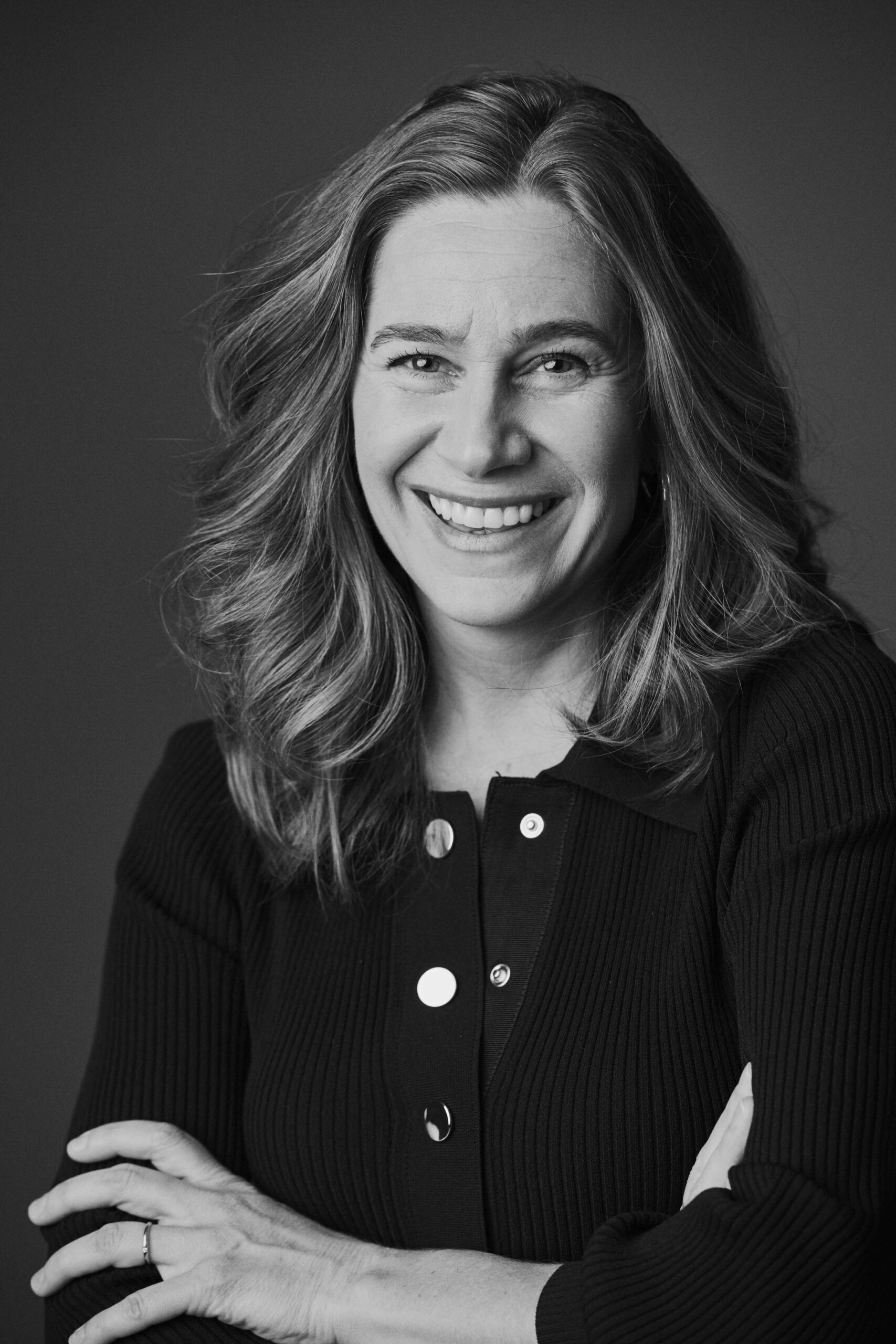Kate Bowler: Everywhere you look, there’s something to worry about. Economic inequality, war in the Middle East, the price of eggs for pizza egg. How much our kids are using social media? How much we are using media? Whether we’ve actually forgiven our father? Why we can’t sleep? Is our marriage okay? Is my job secure? Will I have enough for retirement? The list just goes on and on and on. And apologies in advance if this is sparking any new spirals. This is your constant hum too, isn’t it? This is Everything Happens, and I’m Kate Bowler.
Anxiety feels like it’s at a fever pitch. And it’s not always wrong. Sometimes fear is a perfectly reasonable response to the world as it is. But sometimes it’s a flashing check engine light, a signal from our bodies or our minds that something needs tending. So today we’re talking about anxiety with one of the smartest, kindest, most attuned people that I’ve ever met, Dr. Ellen Vora.
Ellen and I are going to be talking about different kinds of anxiety, like false anxiety, that hummy feeling that you can reasonably trace to that third espresso, or true anxiety, the kind that whispers from somewhere deeper, “something’s not right here.” Let’s see if we can listen a little closer and find a way forward together.
Dr. Ellen Vora is one of those rare doctors who treats the whole person, mind, body, and spirit. Ellen went to medical school at Columbia University. She’s also a board-certified psychiatrist, acupuncturist, yoga teacher, and the author of an absolutely spectacular book called The Anatomy of Anxiety. She is also a dear friend and one of my very favorite people to talk with about what is actually going on underneath the surface. Ellen, welcome to my podcast, which is my excuse to hang out with my friends professionally.
Ellen Vora: Thank you, Kate. I missed that whole thing. I was in a daze, just mesmerized by your eyes, but it’s so good to be here.
Kate Bowler: Welcome to my vortex. If you don’t mind my historian’s hat right away, I’ve been really thinking about something and I wanted to know what you thought about it. Every age seems to know something intimately about anxiety. In the 1930s, anxiety was global: authoritarianism, war, that terrifying sense that everything could unravel all at once. And then in the 1970s, that fear turned inward. It became more personal. We saw the rise of therapeutic culture, self-help, inner work—the idea that maybe if we could fix something about ourselves, maybe we could fix the world. But now, what is now? It feels like we’re in some kind of strange combination of both. Does that analysis sound remotely right to you?
Ellen Vora: What feels true to me is that the way I describe it, the pH of our age seems to be anxiety. In every age, people are getting out of balance, and how they subjectively suffer does seem to have a fingerprint with different eras, different generations. This moment when we’re out of balance, the word we use to describe that is commonly “anxiety.” But I think that word lacks granularity to capture all of the ways that we are lacking community, feeling the apocalyptic tenor of late-stage capitalism, all the way to the fact that we are inflamed and overfed, undernourished, under-slept, over-screened. We’re out of balance in physical and psycho-spiritual ways.
Kate Bowler: Let’s start with that incredible diagnosis then of the age, the common language of anxiety. One in nine people have been diagnosed with a mental health disorder, and anxiety is among the most prevalent. But you say something surprising: anxiety is not what’s wrong with you. It’s your body and mind fiercely alerting you that something else is wrong. Tell me what you mean by that.
Ellen Vora: A lot of the way we approach modern medicine harkens back to the glory days when we discovered antibiotics. Diagnosis equals treatment equals cure. We’re still trying to apply that framework even though most of what plagues us now is chronic and amorphous.
The disease model of mental health was a step forward compared to older stigma. Instead of saying it’s a moral failing, we reframed it as a genetic chemical imbalance. That was well-meaning and sometimes medication works, which is great. But for many people, that’s not the whole truth. People take meds, maybe they help for a while, but then side effects or diminishing returns set in. That story leaves them demoralized.
What’s more true is that anxiety and depression may not be as simple as serotonin. We might have missed the real mechanisms.
Kate Bowler: What strikes me about your work is that you’re trying to get us into a different relationship with fear, and that we need more language. Even just the way you categorize true anxiety and false anxiety. Can you explain the difference?
Ellen Vora: False anxiety happens when something has physically thrown us out of balance—like a blood sugar crash, hangover, or bad sleep from doom scrolling. The body enters a stress response. Some of us experience that as anxiety or even panic. The best thing we can do is identify the trigger and address it physically, which reduces unnecessary suffering.
Kate Bowler: So when I think about false anxiety, should I think of it like an equation?
Ellen Vora: Exactly. There’s math to it. A couple glasses of wine plus blood sugar crash plus doom scrolling equals poor sleep, chemical shifts, stress hormones—and anxiety.
Kate Bowler: Sometimes my producer Jessica will say, “Maybe you just need to take a walk and eat a banana.” And it feels like she’s solved false anxiety.
Ellen Vora: Yes. People push back: “That might help mild anxiety, but serious cases need meds.” I prescribe meds, and they can be lifesaving. But even severe anxiety can stem from sleep deprivation, inflammation, or diet. It’s not a matter of severity, but of mechanism. Addressing those physical issues can make a big difference.
Kate Bowler: Reading your book opened a door for me. If false anxiety is like the check engine light, what simple things can we do to turn it off?
Ellen Vora: Mental health is often physical health. The basics matter:
Sleep. Modern life undermines melatonin. With strategy, we can improve sleep.
Movement. A ten-minute walk after dinner shifts metabolism and mood.
Nutrition. We need nourishment, not fear or obsession around food. Traditional food wisdom is more reliable than industrial guidelines.
Stress management. Hard to do, but often it means saying “no” when we mean it.
Kate Bowler: That bundle—sleep, nutrients, saying no—feels like real self-care. What if I knew my body’s needs and actually tended to them?
Ellen Vora: Exactly. But especially women are conditioned to serve first. That makes rest feel selfish, when in fact it’s essential.
Kate Bowler: I was raised on the “feed everyone else first” model. But I see now that my own health is what makes me able to know what I can handle.
Kate Bowler: Okay, so that’s false anxiety. But what about true anxiety—the things we should be anxious about?
Ellen Vora: True anxiety isn’t a pathology. It’s not solved by diet tweaks. It’s often what’s right with us. It’s the intact heart noticing that something is off—whether in our lives, our communities, or the world. Culture might tell us we’re too sensitive, but some people are meant to be feelers.
True anxiety is about impermanence and uncertainty: that we will die, lose loved ones, suffer. Humans hate uncertainty, but control was never ours to begin with.
Kate Bowler: I want to have a healthy relationship with fear. But often I just keep moving, ignoring it, because stopping feels like too much.
Ellen Vora: That’s where distinguishing false anxiety helps. Clear out unnecessary suffering, then tend to what’s real.
Kate Bowler: My friend Lisa Damour says she won’t diagnose until she knows someone’s sleep is sorted.
Ellen Vora: Exactly. Sleep first. Then we can see the rest more clearly.
Kate Bowler: My dad used to tell me, “You care too much. Maybe try being someone who cares less.” He wanted to protect me, but I could never care less.
Ellen Vora: Nor should you. Some people are meant to care deeply—it’s their role in the ecosystem. Others don’t, and we need them too. But if you’re a big-feeler, you need practices to metabolize that input.
One of the best is crying. We need a cultural rebrand around crying. It’s not weakness—it’s medicine. Deep crying allows us to release grief and stress.
Kate Bowler: I love the idea of completing the stress cycle. Crying, or even physically shaking it off, like animals do.
Ellen Vora: Exactly. Animals shake after stress to discharge adrenaline. I do a daily 90-second shaking practice. It looks silly but works. It also leads into meditation.
Meditation isn’t about clearing your mind. It’s about strengthening the muscle of present-moment awareness. Every time you notice your mind wandering and bring it back to your breath, that’s a rep.
Kate Bowler: Ellen, you’ve given us so many categories and practices. Naming these difficult feelings makes them easier to carry.
Ellen Vora: And I love that our work offers different medicines. Sometimes people need your acceptance and grace. Sometimes they need my strategies. Together, they help people live more fully.
Kate Bowler: I could use a little bathroom checklist for when I feel anxious:
Did you sleep enough?
Do you need water?
Too much caffeine?
Banana?
Walk outside?
Sometimes what we call anxiety is just the body waving a flag. Other times, the world really is anxiety-producing. Either way, Ellen offers such practical wisdom: more kindness to our nervous systems, less pressure to optimize ourselves into peace.
And if you want more about anxiety and medication, Ellen’s book The Anatomy of Anxiety has a helpful section on distinguishing false and true anxiety in relation to meds.
At the most foundational level, maybe we just need to meet our basic needs, reach for connection, and take small steps against despair. We can’t fix everything. We can only live inside reality with more steadiness and grace.
So if you’re a superfeeler, here is a blessing:
Blessed are you who feel it all. You who cry during commercials. You who carry the weight of the world in your chest, your gut, your skin. You who metabolize the world’s pain and your own. For you are seeing it clearly. All of it—the heartache, the joy, the fear, the fragility. May you learn to listen to the wisdom of your body. May your tears be medicine. May your tenderness not be weakness, but a way of being holy, and wholly human.
This is Everything Happens, with me, Kate Bowler.













Leave a Reply